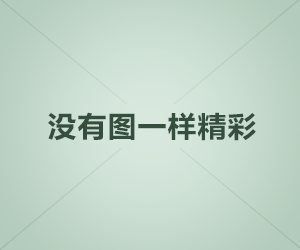如何治疗痤疮痤疮配图,仅供参考
The method of treating acne is closely related to the severity of the disease. Topical therapy is mainly used to treat mild to moderate acne. In the treatment of acne lesions,retinoids and antimicrobials are primarily used . The most popular drugs are benzoyl peroxide and preparations with antibiotics,whose main role is to inhibit existing acne lesions and prevent the formation of new ones . The most popular forms of medicine for oily skin are gels,lotions,and solutions; for people with dry skin,lotions,creams,and ointments are more suitable. The main side effect that occurs when treating acne using these preparations is local irritation . The use of retinoid therapy consists mainly of action on alveolar keratinocytes. This is to prevent excessive actinic keratosis and blockage and also to reduce the release of proinflammatory cytokines. Tretinoin,adapalene,and tazarotene are the most commonly used drugs in this group. Local antimicrobials,such as benzoyl peroxide,which kills bacteria by releasing oxygen into the follicle,are highly effective in treating this condition. Antibiotics,which are available in the form of preparations of various concentrations,are also very effective. As shown by the data,effective compounds from this group are erythromycin and clindamycin,which are topically administered and are well tolerated. However,it should be remembered that monotherapy with topical antibiotics should not be used routinely,because bacteria,including P. acnes,can become resistant very quickly . To avoid resistance,a topical antibiotic with benzoyl peroxide is recommended. This treatment is used because the data indicate that combination therapy is more effective than using retinoids and antibiotics separately . However,it is important to use these measures simultaneously only if they are compatible . Many people struggling with acne,especially mild forms,use over-the-counter products. Among them,Proactiv,containing benzoyl peroxide,is very popular. Washing with 2% salicylic acid or using antibacterial soaps with benzoyl peroxide are also common methods . In moderate to severe acne patients,topical medications are often insufficient,so systemic therapy is used. This includes oral antibiotic therapy,hormonal therapies,and the use of isotretinoin. Tetracyclines,erythromycin,minocycline,and doxycycline are very often used,which effectively reduce the number of inflammatory lesions . Hormonal drugs are also used to treat acne. Studies show that estrogen-containing oral contraceptives and preparations that lower free testosterone levels give good results. On the other hand,progesterone-only contraceptives may increase acne lesions . Ethinylestradiol and drospirenone,as well as ethinylestradiol with cyproterone acetate,have also shown quite good efficacy . However,the use of combination therapy with topical agents or oral antibiotics brings better treatment results . Isotretinoin is a very effective therapy,but not without side effects. It shows very good efficiency,because it can alter keratosis,reduce sebum secretion,inhibit P. acnes colonization,and has anti-inflammatory effects. This therapy should be used only in the case of very severe forms of the disease,because side effects include,among others,strong teratogenicity,hepatoxicity,hyperostosis,pancreatitis,erythema multiforme,epidermal necrolysis,or night blindness. It is also possible to use herbal therapies,such as tea tree oil or other oral herbal substances. Acne therapy may also include physical treatments,among which the popular methods are blackhead extraction,chemical peels,microdermabrasion,blue photodynamic therapy,and laser treatments for acne scars .","department":"

